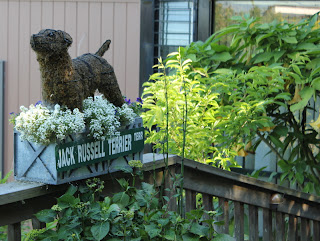David Wagoner, who lives in Washington
state, is one of our country’s most distinguished poets and the author of many
wonderful books. He is also one of our best at writing about nature, from which
we learn so much. Here is a recent poem by Wagoner that speaks to perseverance. [Introduction
by Ted Kooser.]
The Cherry Tree
Out of the nursery and into the garden
where it rooted and survived its first hard
winter,
then a few years of freedom while it
blossomed,
put out its first tentative branches,
withstood
the insects and the poisons for insects,
developed strange ideas about its height
and suffered the pruning of its quirks and
clutters,
its self-indulgent thrusts
and the infighting of stems at cross
purposes
year after year. Each April it
forgot
why it couldn’t do what it had to do,
and always after blossoms, fruit, and
leaf-fall,
was shown once more what simply couldn’t
happen.
Its oldest branches now, the survivors
carved
by knife blades, rain, and wind, are sending
shoots
straight up, blood red, into the light again.
American Life in Poetry is made possible by The Poetry
Foundation (www.poetryfoundation.org), publisher of Poetry magazine.
It is also supported by the Department of English at the University of
Nebraska-Lincoln. Poem copyright ©2008 by David Wagoner, whose most recent book
of poetry is Good Morning and Good Night, University of Illinois Press,
2005. Reprinted from Crazyhorse, No. 73, Spring 2008, by permission of
David Wagoner. Introduction copyright © 2012 by The Poetry Foundation. The
introduction's author, Ted Kooser, served as United States Poet Laureate
Consultant in Poetry to the Library of Congress from 2004-2006.































.jpg)


